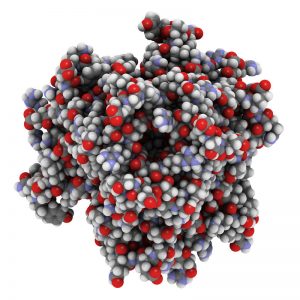
Cytokines are small peptides that are emitted by immune cells as a form of communication – both “pro-inflammatory” and “anti-inflammatory” as well as simply regulatory. These signaling molecules usually bind with receptors after which the messaging is completed to the cell, tissue, or organ. Inhibiting this messaging can indeed be anti-inflammatory and beneficial temporarily for people with inflammatory diseases such as rheumatoid arthritis. However, some of this messaging is not only good but essential in terms of maintaining healthy immune function. TNF alpha is an example (pictured). Now we learn that people treated with these drugs for conditions such as colitis seem to get “outbreaks” of herpes zoster or shingles more often. But, could it be that the herpes zoster is actually the underlying cause of the colitis in the first place? No one seems to risk claiming it, but the evidence is becoming more compelling that colitis and many other inflammatory illnesses may in fact have a virus – often a herpesvirus – as the underlying cause. Epstein-Barr, herpes simplex, and herpes zoster among others likely are involved in any number of different chronic inflammatory conditions. Administering drugs that inhibit critical cytokine activity, ironically, may in the short term reduce the inflammation but ultimately create a more permissive environment for viruses like the herpes family to thrive. And then they can cause cancer.
So, why not treat the viral cause instead?